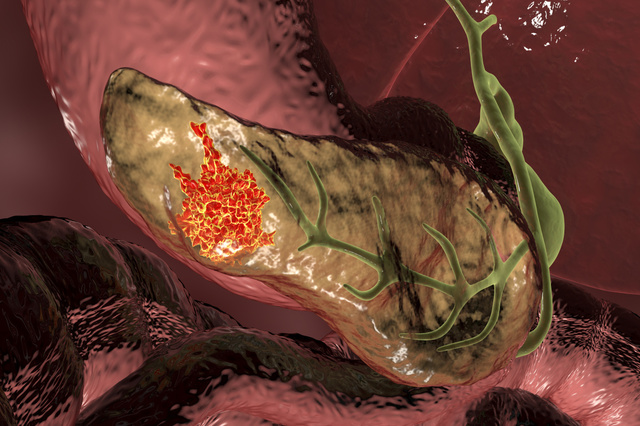There is an urgent need for more scientific research into pancreatic cancer to better understand this cancer and improve patient survival.
Less than 13 percent of people with pancreatic or pancreatic cancer are now found to be alive five years after diagnosis. That’s what he says Cancer Foundation On the occasion of World Pancreas Day on November 18.
Currently, about 2,000 new cases are registered each year and the infection rate is still increasing. The organization estimates that pancreatic cancer will be among the three deadliest cancers in Belgium by 2030. According to the Foundation Against Cancer, “It is a highly resistant cancer that is difficult to detect and still requires a lot of research to achieve promising results.” Among other things, it indicates that the clinical signs are not specific and that there is currently no method for the systematic early detection of pancreatic cancer. This means that cancer is often caught too late and treatment is also difficult.
Therefore, research into pancreatic cancer has a great need for new discoveries, according to the Cancer Control Foundation. In its own words, the same organization has funded eight research projects in basic and clinical research in this field across Belgium with nearly €2 million over the past five years.
A team of researchers from Vrije Universiteit Brussel (VUB) and UZ Brussel, Belgian and foreign scientists led by Professor Ilse Rooman of VUB, has proven that funding such research projects is paying off. They discovered a cell in the pancreas of healthy people very similar to the cells responsible for the most aggressive pancreatic cancers. These cells are increased in patients with chronic inflammation of the pancreas, a factor that increases the risk of cancer. This cell could be the origin of a particular pancreatic cancer subtype, or at least tell us how that subtype develops. If confirmed, it could be vital information for better detection and treatment.”
Less than 13 percent of people with pancreatic or pancreatic cancer are now found to be alive five years after diagnosis. This is what the Cancer Foundation says on the occasion of World Pancreas Day on November 18. Currently, about 2,000 new cases are registered each year and the infection rate is still increasing. The organization estimates that pancreatic cancer will be among the three deadliest cancers in Belgium by 2030. According to the Foundation Against Cancer, “It is a highly resistant cancer that is difficult to detect and still requires a lot of research to achieve promising results.” Among other things, it indicates that the clinical signs are not specific and that there is currently no method for the systematic early detection of pancreatic cancer. This means that cancer is often caught too late and treatment is also difficult. Therefore, research into pancreatic cancer has a great need for new discoveries, according to the Cancer Control Foundation. In its own words, the same organization has funded eight research projects in basic and clinical research in this field across Belgium with nearly €2 million over the past five years. A team of researchers from Vrije Universiteit Brussel (VUB) and UZ Brussel, Belgian and foreign scientists, led by Professor Ilse Rooman of VUB, has demonstrated that funding such research projects is paying off. They discovered a cell in the pancreas of healthy people very similar to the cells responsible for the most aggressive pancreatic cancers. These cells are increased in patients with chronic inflammation of the pancreas, a factor that increases the risk of cancer. This cell could be the origin of a particular pancreatic cancer subtype, or at least tell us how that subtype develops. If confirmed, it could be vital information for better detection and treatment.”

“Total coffee specialist. Hardcore reader. Incurable music scholar. Web guru. Freelance troublemaker. Problem solver. Travel trailblazer.”







More Stories
GALA lacks a chapter on e-health
Weird beer can taste really good.
Planets contain much more water than previously thought